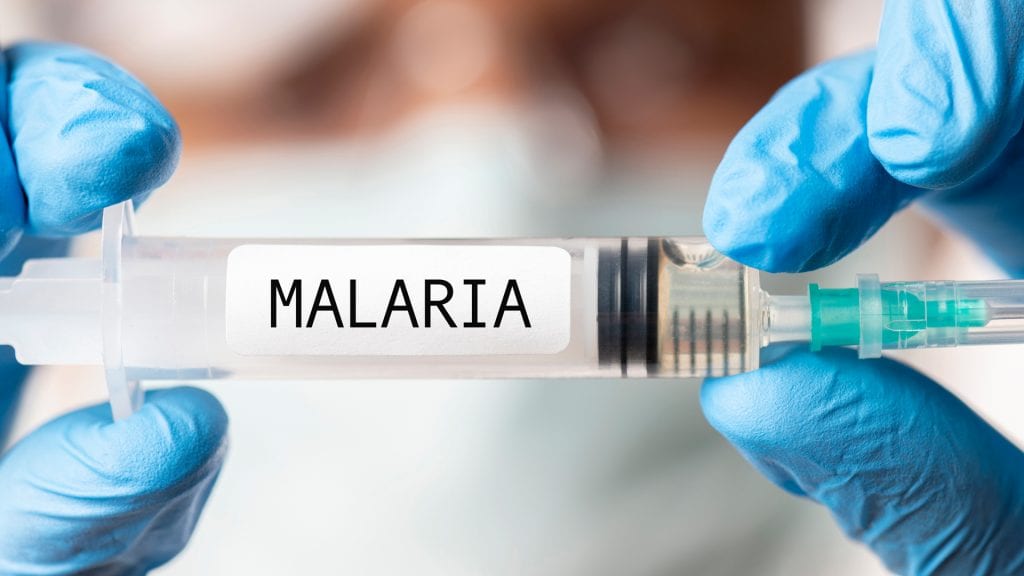
IMPACT: R21 malaria vaccine set to transform public health in Africa

In a groundbreaking development, a recently published study has revealed promising findings about the potential public health benefits of introducing the R21/Matrix-M malaria vaccine across sub-Saharan Africa. The study, conducted by a team of scientists from the UK and Africa, suggests that the vaccine holds great promise in significantly reducing the burden of malaria across the region.
Malaria remains a major public health concern in sub-Saharan Africa, claiming hundreds of thousands of lives annually in the region. However, introducing this vaccine could mark a turning point in the fight against the deadly parasite.
Public health impact of vaccine
The study, published on The Lancet Infectious Diseases journal, aimed to estimate the public health impact and cost-effectiveness of vaccine introduction across sub-Saharan Africa. Findings suggest that introducing the R21/Matrix-M malaria vaccine could have a large public health impact.
“Our results demonstrate that introducing R21/Matrix-M into routine childhood immunization in malaria-endemic areas of sub-Saharan Africa could have a substantial public health impact,” wrote the scientists in their paper highlighting the importance of this breakthrough.
Last year in October, the World Health Organization (WHO) officially recommended the R21/Matrix-M vaccine for the prevention of malaria in children. The vaccine is the second malaria vaccine recommended by WHO, following the RTS, S/AS01 vaccine, which received a WHO recommendation in 2021.
Read the WHO announcement here.
Estimating vaccine impact using trial data
The study, which utilized trial data spanning three years of follow-up in the Nanoro region of Burkina Faso across various settings with differing rates of malaria transmission, demonstrated that administering four doses of the R21/Matrix-M vaccine to children aged 5–17 months could prevent a substantial number of clinical cases and malaria-related deaths.
The study employed a semi-mechanistic model to analyze the relationship between anti-circumsporozoite protein antibody titers and vaccine efficacy, integrating this framework within a mathematical transmission model to estimate the potential impact of vaccine introduction over a 15-year time horizon. In both persistent and seasonal settings, the vaccine showed the potential to prevent a significant proportion of malaria cases and deaths over a 15-year period.
“Across settings with rates of P falciparum transmission between 3% and 65%, PfPR2–10, age-based introduction of four doses of the vaccine could avert 181 825 clinical cases and 629 malaria deaths for every 100,000 fully vaccinated children in perennial settings, and 202,017 clinical cases and 653 malaria deaths per 100,000 fully vaccinated children in seasonal settings over 15 years.”
“These averted deaths translate to preventing one malaria death for every 159 children vaccinated in perennial settings and 153 children vaccinated in seasonal settings,” they added.
Considering tailored models
While the scientists recognize the potential of the R21/Matrix-M vaccine, they also caution that the modelled generalized settings may not fully capture the diverse sub-Saharan African contexts. Tailored models considering local epidemiology and cost data, along with comparisons to other interventions, are crucial for adapting these findings to specific settings.
“These findings support the potential role of the R21/matrix-M vaccine in reducing the childhood malaria burden. Implementation of RTS, S/AS01 through existing programmes has shown that malaria vaccines can have a broader effect on childhood mortality, and this study suggests that the addition of a second malaria vaccine will help to further reduce the global burden.”
About the R21/Matrix-M Vaccine
The R21/Matrix-M vaccine was developed by The University of Oxford, UK in collaboration with the Serum Institute of India, leveraging Novavax’s adjuvant technology. The R21/Matrix-M vaccine combines the R21 recombinant protein with the Matrix-M adjuvant, enhancing its effectiveness in eliciting an immune response against the malaria parasite. Clinical trials of the R21/Matrix-M have shown promising results, with the vaccine demonstrating high levels of efficacy in preventing malaria infection.
Ifakara scientist contributes to the study
Ifakara Health Institute scientist Ally Olotu contributed to the study which was led by Nora Schmit from the Imperial College London alongside lead co-authors Hillary Topazian, Azra Ghani and Peter Winskill – also from the same institution.
Other contributors include scientists from Institut de Recherche en Sciences de la Santé in Burkina Faso, the University of Oxford in the UK, Kenya Medical Research Institute-Wellcome Trust Research Programme in Kenya, the University of Science, Technology, and Techniques of Bamako in Mali and the GSK Vaccines Institute for Global Health (Global Health Vaccines R&D) in Italy.
Read the publication here.
